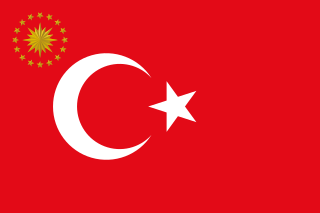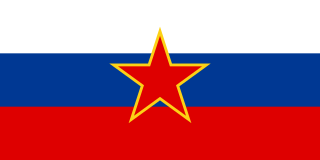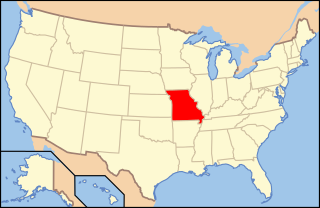 |
|---|
Contents |
A constitutional referendum was held in Algeria on 21 October 1945 as part of the wider 1945 French constitutional referendum.
Both referendum questions were approved by voters, with a turnout of 69%. [1]
 |
|---|
Contents |
A constitutional referendum was held in Algeria on 21 October 1945 as part of the wider 1945 French constitutional referendum.
Both referendum questions were approved by voters, with a turnout of 69%. [1]
| Choice | Votes | % |
|---|---|---|
| For | 313.425 | 96.1 |
| Against | 12,741 | 3.9 |
| Invalid/blank votes | 16,562 | – |
| Total | 342,728 | 100 |
| Registered voters/turnout | 325,416 | 71.6 |
| Source: Sternberger et al. | ||
| Choice | Votes | % |
|---|---|---|
| For | 232,913 | 71.6 |
| Against | 92,503 | 28.4 |
| Invalid/blank votes | 17,312 | – |
| Total | 342,728 | 100 |
| Registered voters/turnout | 325,416 | 71.6 |
| Source: Sternberger et al. | ||

The president of Turkey, officially the president of the Republic of Türkiye, is the head of state and head of government of Turkey. The president directs the executive branch of the national government and is the commander-in-chief of the Turkish military. The president also heads the National Security Council.

The regions of Italy are the first-level administrative divisions of the Italian Republic, constituting its second NUTS administrative level. There are twenty regions, five of which are autonomous regions with special status. Under the Constitution of Italy, each region is an autonomous entity with defined powers. With the exception of the Aosta Valley, each region is divided into a number of provinces.
A constitutional amendment is a modification of the constitution of a polity, organization or other type of entity. Amendments are often interwoven into the relevant sections of an existing constitution, directly altering the text. Conversely, they can be appended to the constitution as supplemental additions, thus changing the frame of government without altering the existing text of the document.

The prime minister of Turkey, officially the prime minister of the Republic of Turkey, was the head of government of the Republic of Turkey from 1920 to 2018, who led a political coalition in the Turkish Parliament and presided over the cabinet. Throughout the political history of Turkey, functions and powers of the post have changed occasionally. Prior to its dissolution as a result of the 2017 Constitutional Referendum, the holder of the premiership was generally the dominant figure in Turkish politics, outweighing the president.

Elections in Benin take place within the framework of a multi-party democracy and a presidential system. Both the President and the National Assembly are directly elected by voters, with elections organised by the Autonomous National Electoral Commission (CENA).
The Constitution Alteration Bill 1946, was a successful proposal to alter the Australian Constitution to give the Commonwealth power over a range of social services. The question was put to a referendum in the 1946 Australian referendum with two other (unrelated) questions. It was carried and inserted into section 51 of the Australian Constitution.

Elections in Niger take place within the framework of a semi-presidential system. The President and National Assembly are elected by the public, with elections organised by the Independent National Electoral Commission (CENI).

Elections in Togo take place within the framework of a presidential system. Both the President and the National Assembly are directly elected by voters. Togo is a one party dominant state with the Union for the Republic in power.

The current Constitution of the Republic of Serbia, also known as Mitrovdan Constitution is the supreme and basic law of Serbia. It was adopted in 2006, replacing the previous constitution dating from 1990.

The Socialist Republic of Slovenia, commonly referred to as Socialist Slovenia or simply Slovenia, was one of the six federal republics forming Yugoslavia and the nation state of the Slovenes. It existed under various names from its creation on 29 November 1945 until 25 June 1991.

A constitutional referendum was held in France on 21 October 1945. Voters were asked whether they approved of the Assembly elected on the same day serving as a Constituent Assembly, and whether until a new constitution was approved, the country would be governed according to a proposed set of laws that appeared on the ballot paper. If the first proposal had not been approved, the Third Republic would have been restored, but its approval led to the elected Assembly drafting a constitution and proposing it to the people a year later, resulting in the creation of the Fourth Republic. Both were approved by wide margins with a turnout of 79.8%.

A constitutional referendum was held in France on 5 May 1946. Voters were asked whether they approved of a new draft Constitution proposed by the Constituent Assembly elected in 1945.

A constitutional referendum was held in France on 28 September 1958. Voters were asked whether they approved of the adoption of a constitution for the French Fifth Republic written by Charles de Gaulle. It was overwhelmingly approved, with 82.6% in favour. Voter turnout was 84.9% in metropolitan France and 79.8% overall.

The Missouri Constitution is the state constitution of the U.S. State of Missouri. It is the supreme law formulating the law and government of Missouri, subject only to the federal Constitution, and the people. The fourth and current Missouri Constitution was adopted in 1945. It provides for three branches of government: legislative, executive, and judicial. It also sets up local governments in the form of counties and cities.
The Fundamental Laws of the Realm were a set of de facto constitutional laws organizing the powers of the Francoist regime in Spain, the dictatorship of Generalissimo Francisco Franco. In 1977, during the transition to democracy, an eighth law with the same status as the others was brought into effect, altering the legislative framework in order to bring to a head the process of political reform. Rather than a typical constitution, the laws were fueros, a distinctly Spanish legal concept dating to medieval times with a wide range of meanings, as they had not been developed or approved by elected representatives.

A constitutional referendum was held in French Dahomey and French Togoland on 21 October 1945 as part of the wider French constitutional referendum. In the two territories both questions were approved by large margins. Voter turnout was 84%.

The constitution of the French Fifth Republic allows three types of referendum:

A constitutional referendum was held in French Gabon and Moyen Congo on 21 October 1945 as part of the wider French constitutional referendum. Both questions were approved by large margins. Voter turnout was 68.1%.

A constitutional referendum was held in Mauritania and Senegal on 21 October 1945 as part of the wider French constitutional referendum. The first question on the new French National Assembly serving as a constituent assembly was approved by 99% of voters, but the temporary constitution proposed in the second question was rejected by 51% of voters. Both proposals were approved in the overall vote. Voter turnout was 60%.